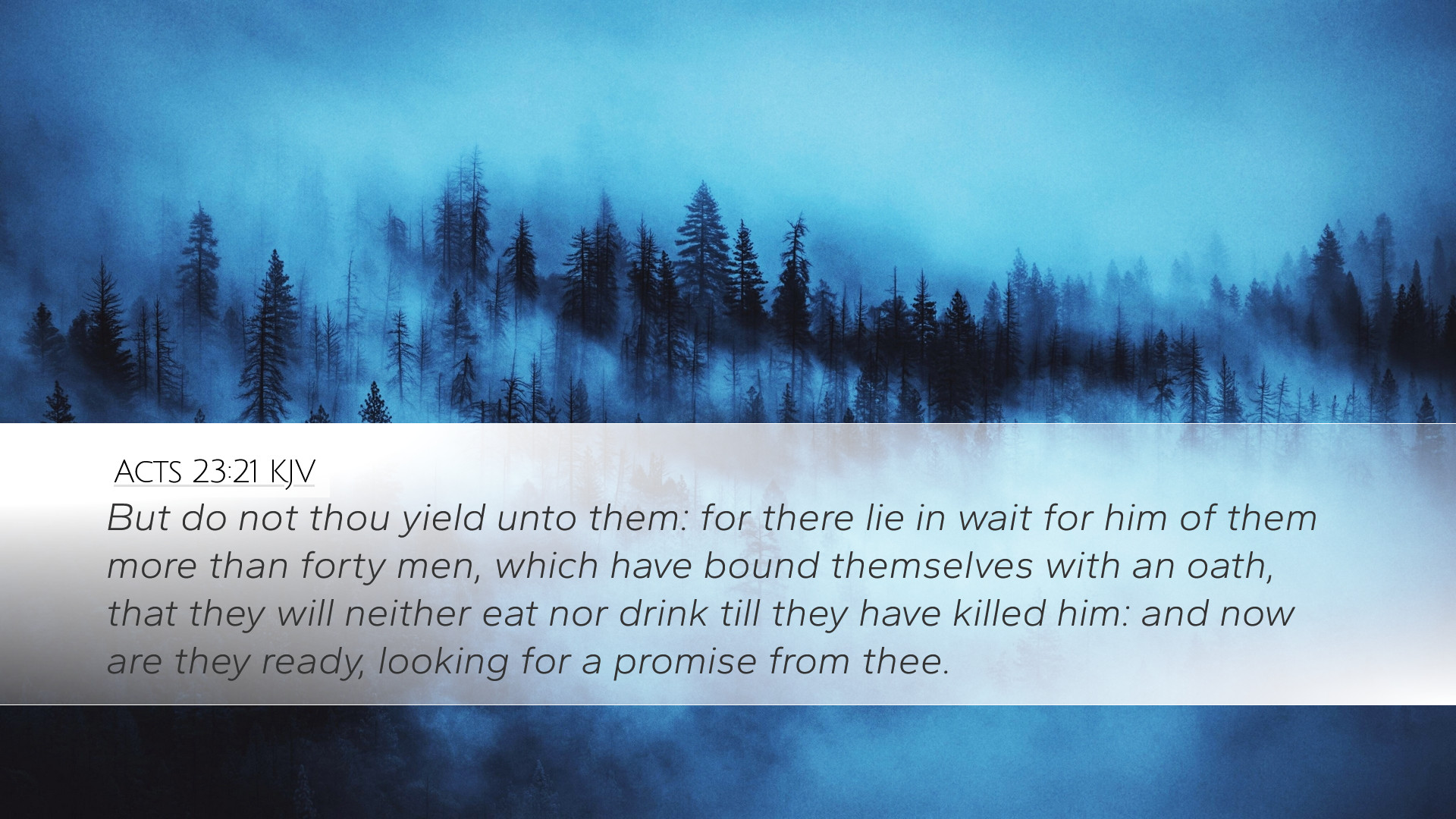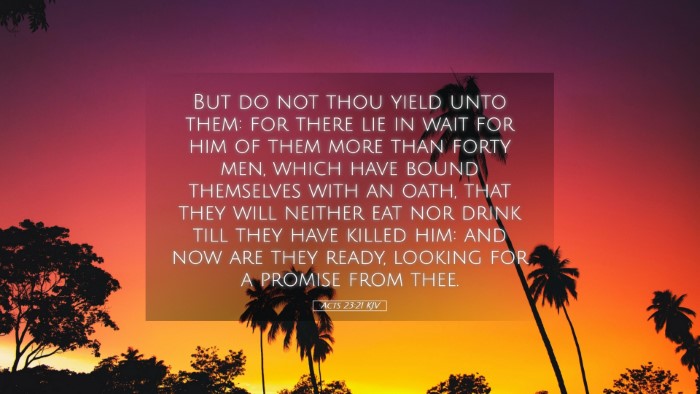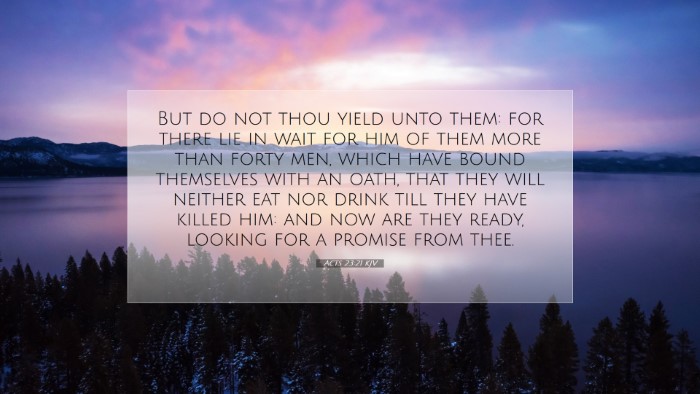Commentary on Acts 23:21
Bible Verse: "But do not yield to them, for more than forty of them are lying in wait for him, who have bound themselves by an oath neither to eat nor drink till they have killed him. And now they are ready, waiting for the promise from you."
Introduction
This verse presents a pivotal moment in the narrative of the Apostle Paul, shedding light on the depth of animosity against him and the lengths to which his adversaries would go to thwart his mission and ultimately take his life. In examining this text, insights from various public domain commentaries, including those by Matthew Henry, Albert Barnes, and Adam Clarke, provide a multifaceted understanding of the implications of this passage for early Christianity and its enduring relevance for contemporary believers.
Contextual Background
The events surrounding Acts 23 depict a tumultuous period in Paul's ministry. Following his arrest in Jerusalem, Paul faces intense scrutiny from both Jewish authorities and Roman powers. Acts 23:21 specifically reveals a plot against him orchestrated by more than forty Jews who had sworn an oath to kill him. This highlights the severe opposition he faced and illustrates the precarious situation in which the early church found itself.
Insights from Matthew Henry
Matthew Henry emphasizes the severity of the conspiracy against Paul. He notes:
- Desperation of Opponents: The actions of over forty men bound by an oath underscore the desperation of Paul's opponents. They believed that by eliminating Paul, they could extinguish the spread of the Gospel.
- Spiritual Warfare: Henry sees this event as an illustration of the spiritual warfare that believers face. The commitment of these men reflects a deeper spiritual conflict against the advancement of God’s kingdom.
- God's Protection: Despite human conspiracy, Henry underscores God's providence, demonstrating how God protects His servants. This theme reveals God's sovereignty even amidst perilous situations.
Insights from Albert Barnes
Albert Barnes provides historical context and practical applications in his commentary:
- Political Intrigue: Barnes points out the political motivations behind the plot. The Jewish leaders were threatened by Paul's teachings and the growing influence of Christianity, leading them to resort to extreme measures.
- Moral Implications: The moral decay of these conspirators highlights the lengths to which some will go to serve their ambitions, challenging modern believers to reflect on their convictions and the integrity of their witness.
- Call for Vigilance: Barnes encourages vigilance in the face of opposition, reminding believers that they must not only be aware of potential threats but also be prepared to stand firm in their faith.
Insights from Adam Clarke
Adam Clarke adds a theological perspective to this passage:
- Oath and Vows: Clarke discusses the significance of oaths in Jewish culture and the gravity of making such a vow to kill. He explores the ethical dimensions of such a commitment, contrasting it with the Christian call to love and forgiveness.
- Divine Providence: Echoing Henry’s sentiments, Clarke highlights God’s control over the events unfolding. The preparation of the plotters ultimately leads to a greater revelation of God's glory through Paul’s eventual trials and defenses.
- Encouragement for Believers: Clarke also uses this instance to encourage believers, reminding them that even when facing adversity, God allows trials to ultimately serve His purposes in building faith and resilience in His followers.
Theological Reflections
Acts 23:21 serves as a rich text for theological reflection among scholars and pastors. It invites examination of key themes such as:
- Human Responsibility vs. Divine Sovereignty: The plot against Paul illustrates human antagonism towards God's work. Yet, God’s providential care ensures that even conspiracies serve His divine plan.
- Faithfulness in Persecution: Paul’s resolve in the face of such aggression encourages contemporary Christians to remain steadfast despite opposition. His response to danger serves as a model for living out one’s faith courageously.
- The Church's Missional Call: This passage reminds the church of its ongoing mission in hostile environments, urging believers to remain committed to the truth of the Gospel, even when faced with severe consequences.
Conclusion
Acts 23:21 encapsulates a profound narrative of conflict and divine intervention. By synthesizing insights from Matthew Henry, Albert Barnes, and Adam Clarke, we gather a deep understanding of the implications of this text. It is a call to both reflection and action for pastors, students, theologians, and Bible scholars, emphasizing the necessity of unwavering faith amidst the complexities of life and ministry.


